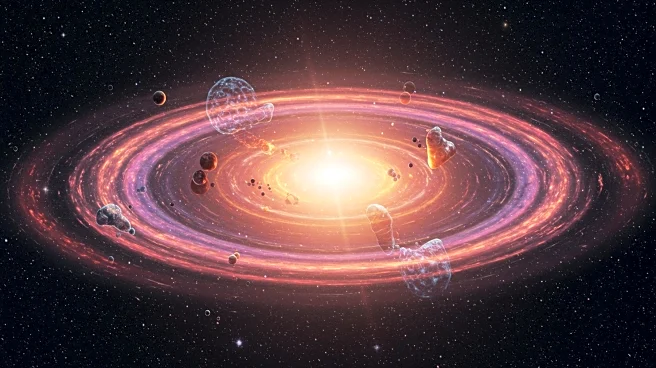What's Happening?
Researchers have detected complex organic molecules in the protoplanetary disk surrounding the newborn star V883 Orionis, located 1,350 light-years away. Using the Atacama Large Millimeter/submillimeter Array (ALMA), the team identified molecules such as ethylene glycol and glycolonitrile, which are precursors to sugars and amino acids. This discovery suggests that protoplanetary disks inherit complex molecules from earlier stages of star formation, challenging previous assumptions about the survival of biomolecules during the star's destructive phase.
Why It's Important?
The presence of these molecules in the protoplanetary disk indicates a direct chemical link between interstellar clouds and fully evolved planetary systems. This finding enhances our understanding of how life-essential molecules form and survive in space, potentially influencing theories about the origins of life on Earth and other planets. The research could lead to new insights into the conditions necessary for life to develop, impacting fields such as astrobiology and planetary science.
What's Next?
Further observations at higher resolutions and longer wavelengths are planned to confirm the presence of these molecules and identify new ones. Researchers aim to explore other regions of the electromagnetic spectrum to detect more evolved molecules, particularly those containing nitrogen. These efforts may uncover additional complex organic compounds, providing deeper insights into the chemical processes occurring in protoplanetary disks.
Beyond the Headlines
The discovery raises questions about the potential for life beyond Earth, as the presence of life-building molecules in space suggests that the building blocks of life may be more common than previously thought. This could influence the search for extraterrestrial life and the development of technologies to detect biosignatures on distant planets.









